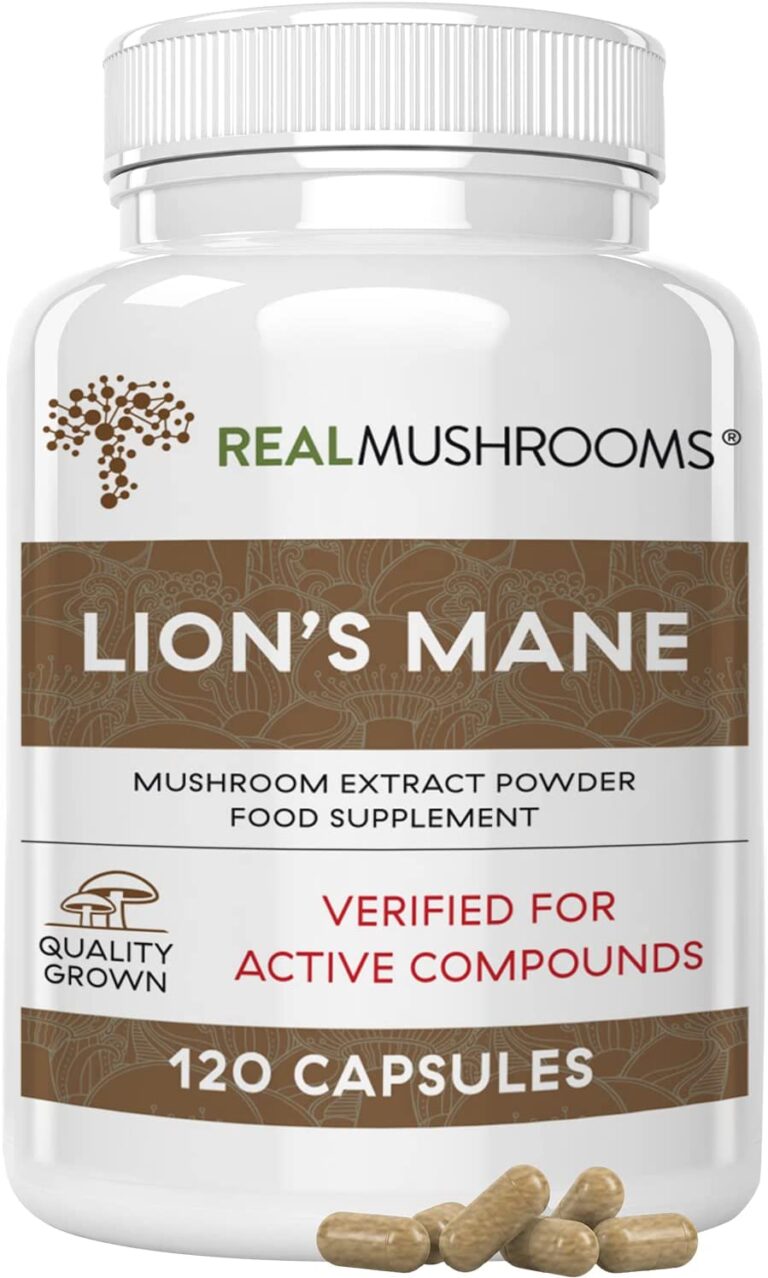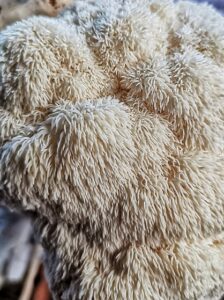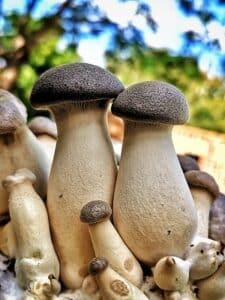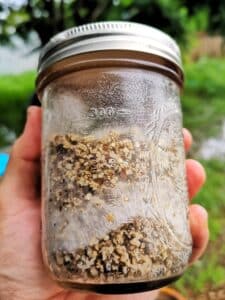Are you looking to experience the numerous health benefits of lion’s mane extract but finding it hard to navigate the market full of low-quality and misleading products? The quest for a high-quality lion’s mane extract can be a challenging one, with so many options and conflicting information available. But don’t worry, we’ve got you covered. In this article, we’ll uncover the key factors to consider when choosing a lion’s mane extract that truly delivers on its promise.
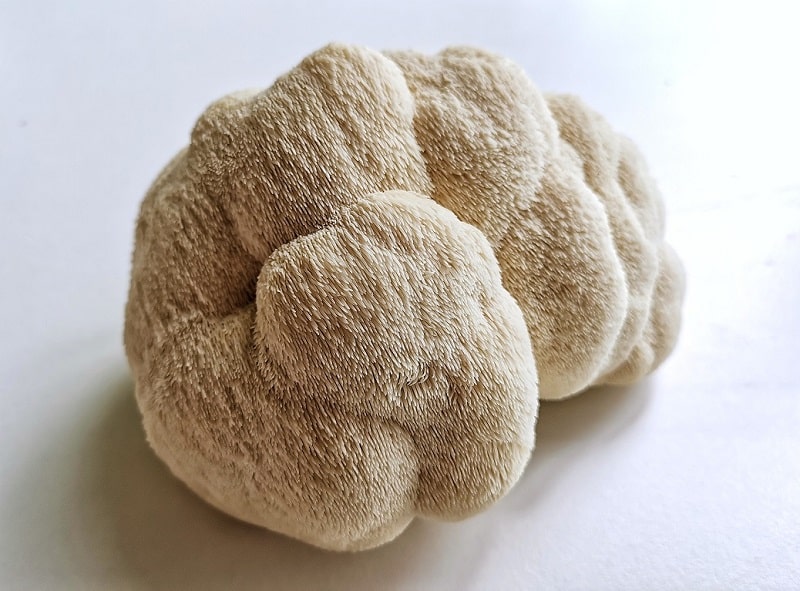
The Benefits of Genuine Lion's Mane Extract
Lion’s mane mushroom is a type of edible fungus that has been used for thousands of years in traditional Chinese medicine. It has recently gained popularity as a supplement due to its numerous health benefits. One of the most significant benefits of lion’s mane is its ability to support brain health. Research has shown that lion’s mane extract can promote the growth and development of nerve cells, leading to improved cognitive function and memory. It has also been shown to reduce inflammation in the brain, which can help protect against age-related neurological disorders like Alzheimer’s and Parkinson’s disease.
In addition to its brain-boosting properties, lion’s mane extract also offers numerous other health benefits. For example, it has been shown to support the immune system, promote heart health, and even help with digestion. It contains antioxidants and anti-inflammatory compounds that help protect cells from damage and reduce inflammation in the body. It is also rich in beta-glucans, which are complex sugars that stimulate the immune system and help fight off infections. Furthermore, lion’s mane extract has been shown to help regulate blood sugar levels, which can be beneficial for people with diabetes. All of these health benefits make lion’s mane extract a valuable addition to any wellness routine.
Is Lion's Mane A Nootropic?
Lion’s Mane is considered by some to be a nootropic, a type of supplement that is believed to enhance cognitive function, improve memory, and promote overall brain health. Within the nootropic community, Lion’s Mane is often used as a study aid due to its potential to improve cognitive performance and enhance memory and concentration.
Studies have shown that the active compounds in Lion’s Mane, including beta-glucans and hericystin, have neuroprotective effects and may support the growth and repair of nerve cells. Additionally, research has shown that Lion’s Mane can improve memory and cognitive function in animals, and there is some preliminary evidence to suggest that it may have similar effects in humans.
Studying the Effects of Lion's Mane
There have been several studies conducted to explore the positive effects of lion’s mane on the brain. These studies have shown promising results, suggesting that lion’s mane extract may have significant benefits for cognitive function and brain health.
One study, published in the Journal of Ethnopharmacology, investigated the effects of lion’s mane extract on nerve growth factor (NGF) levels in mice. NGF is a protein that plays a crucial role in the growth, maintenance, and survival of nerve cells. The study found that supplementing with lion’s mane extract increased NGF levels in the brain, leading to improved cognitive function and memory in the mice.
Another study, published in the International Journal of Medicinal Mushrooms, found that lion’s mane extract could help protect against age-related cognitive decline. The study gave older mice a daily dose of lion’s mane extract and found that it significantly improved their cognitive function and memory compared to a control group. The study also showed that lion’s mane extract reduced inflammation in the brain and increased the production of nerve growth factor, which are both thought to play a role in protecting against age-related cognitive decline.
Additionally, there have been several small-scale human studies that have found positive effects of lion’s mane extract on cognitive function. For example, a study published in Phytotherapy Research found that supplementing with lion’s mane extract for four months improved cognitive function and mood in a group of middle-aged and elderly people. Another study, published in the Journal of Traditional and Complementary Medicine, found that supplementing with lion’s mane extract improved memory and concentration in a group of healthy adults.
While these studies are promising, more research is needed to fully understand the effects of lion’s mane on the brain. However, the available evidence suggests that supplementing with lion’s mane extract may have positive effects on cognitive function, memory, and brain health.
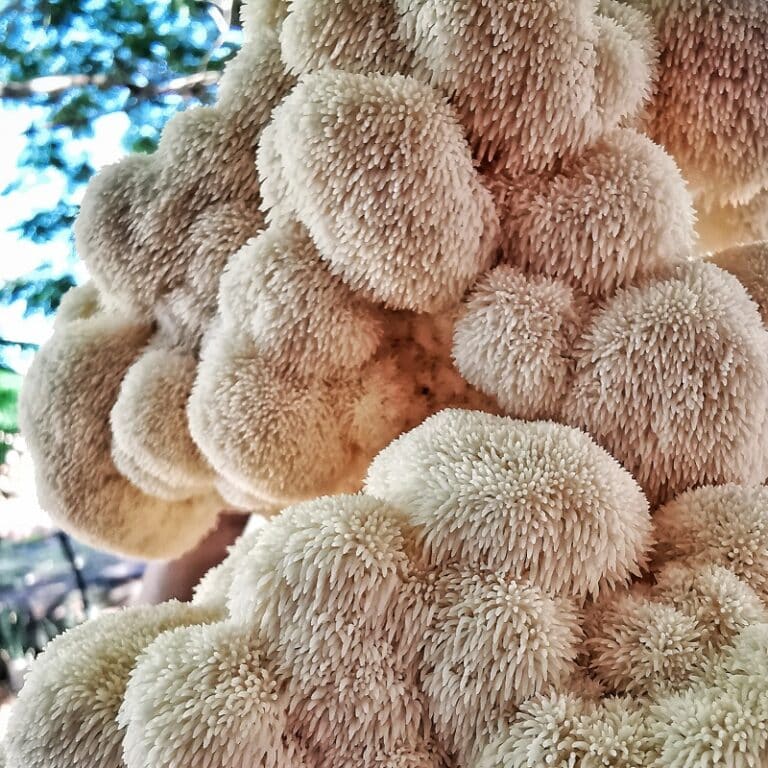
Active Compounds In Lion's Mane
Lion’s mane mushroom contains a variety of compounds that are believed to contribute to its health benefits. Some of the key compounds found in lion’s mane include:
Beta-glucans: These are complex sugars found in the cell walls of lion’s mane that are known to stimulate the immune system and help fight off infections.
Hericenones and Erinacine: These are two compounds found in lion’s mane that have been shown to promote the growth and development of nerve cells in the brain.
Antioxidants: Lion’s mane is rich in antioxidants, including polyphenols and ergothioneine, which help protect cells from damage and reduce inflammation in the body.
Amino acids: Lion’s mane contains several important amino acids, including alanine, aspartic acid, and lysine, which are needed for a variety of physiological processes.
Polysaccharides: Lion’s mane is also rich in polysaccharides, which are complex sugars that have been shown to have anti-inflammatory and immune-boosting properties.
Vitamins and Minerals: Lion’s mane is a good source of vitamins and minerals, including vitamins B and D and minerals such as copper, iron, and potassium.
These compounds work together to promote the various health benefits of lion’s mane. However, the exact amounts of each compound found in lion’s mane supplements can vary, so it’s important to choose a product that is standardized to a specific amount of these key compounds.
Lion's Mane Mycelium Versus Fruiting Body
Lion’s mane mushroom is a type of edible fungus that can be found in two forms: mycelium and fruiting body. Understanding the differences between these two forms of lion’s mane can help you make an informed decision when choosing a supplement.
Mycelium is the vegetative part of the mushroom, consisting of a mass of thread-like structures called hyphae. Mycelium is typically grown on a substrate, such as grain or sawdust, and is often used as the starting material for growing lion’s mane fruiting bodies.
Fruiting body, on the other hand, is the part of the mushroom that is visible and commonly used as food. Fruiting bodies are the reproductive structures of the mushroom and contain all the key compounds that are believed to be responsible for its health benefits, including beta-glucans, hericenones, and erinacine.
In the supplement industry, lion’s mane mycelium is often used as a cheaper alternative to lion’s mane fruiting body. However, there is some debate about the efficacy of mycelium compared to fruiting body. Some studies have found that fruiting body contains higher levels of key compounds like beta-glucans, while others have found no significant difference.
When choosing a lion’s mane supplement, it’s important to look for products made from lion’s mane fruiting body. This will ensure that you are getting a product that contains the highest possible levels of key compounds, and that is more likely to deliver the health benefits you’re looking for.
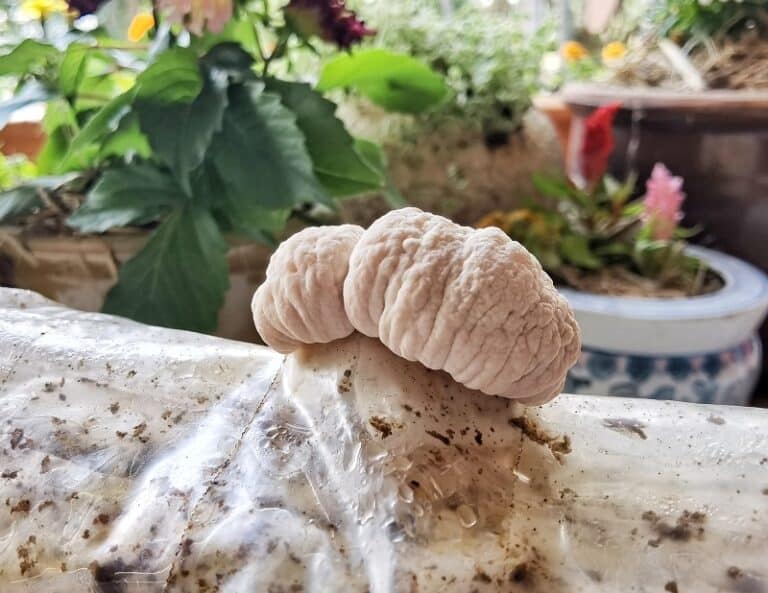
Lion's Mane Tinctures Versus Powdered Extract
Lion’s mane tinctures, which are made by soaking dried lion’s mane mushroom in alcohol, are a popular form of the supplement. However, when compared to lion’s mane powdered extract, tinctures may be less potent. This is because the extraction process for tinctures typically involves soaking the mushroom in alcohol for a longer period of time, which can result in some of the active compounds being lost or degraded.
Furthermore, tinctures are usually more dilute than powdered extract, meaning that you need to take a larger amount to get the same benefits. This can be a disadvantage for those who are looking for a more convenient form of the supplement, as taking larger amounts of tincture can be time-consuming and may result in a stronger taste.
In contrast, lion’s mane powdered extract is made by drying and grinding the mushroom into a fine powder, which is then encapsulated or packaged as a loose powder. This form is typically more potent than tinctures, as it contains higher levels of the active compounds that are believed to be responsible for the health benefits of lion’s mane. Additionally, powdered extract is easier to measure and take, making it a more convenient form of the supplement for many people.
Genuine Lion's Mane Powdered Extract
Real Mushrooms Lion’s Mane Extract is a natural and effective dietary supplement made from the highest quality lion’s mane mushroom. This unique and beneficial mushroom has been used in traditional medicine for centuries and has been shown to provide numerous health benefits.
Real Mushrooms Lion’s Mane Extract is made using a proprietary extraction process that ensures the maximum potency and purity of the supplement. This process removes any unwanted impurities and preserves the active compounds that are responsible for the health benefits of lion’s mane.
By taking Real Mushrooms Lion’s Mane Extract, you can experience the positive effects of this amazing mushroom on your health. It has been shown to improve cognitive function, memory, and concentration, and to provide support for your immune system. Additionally, it may also help to reduce inflammation and promote overall well-being.
Real Mushrooms Lion’s Mane Extract is suitable for vegans and is gluten-free, making it a great choice for those with dietary restrictions. It is also free from artificial colors, flavors, and preservatives, ensuring that you are getting a high-quality and safe product.
So, if you’re looking for a natural and effective way to improve your health, look no further than Real Mushrooms Lion’s Mane Extract. Try it today and experience the benefits for yourself!
Best Way To Take Lion's Mane Supplements
The most effective way to take Lion’s Mane supplement is to follow the recommended dosage on the product label and to take it consistently. It is recommended to take Lion’s Mane at the same time each day, as this can help establish a routine and improve the chances of consistent use. Time of day may not matter as much as consistency, but some people find that taking it in the morning or early afternoon is most effective for them, as this is when the body’s natural cognitive processes are most active.
As for taking Lion’s Mane with food, some people may experience digestive discomfort if they take high doses on an empty stomach, so it may be helpful to take it with a meal. However, taking it with or without food may not have a significant impact on its effectiveness. It is recommended to experiment and see what works best for the individual. However, it is important to keep in mind that while Lion’s Mane is considered generally safe, taking more than the recommended dose may have side effects, and it’s always best to consult a healthcare professional before starting any new supplement regimen.
Ashwagandha Versus Lion's Mane
Ashwagandha and Lion’s Mane are both dietary supplements, but they have different benefits and properties.
Ashwagandha is an herbal adaptogen that is commonly used in traditional Indian medicine to help the body cope with stress and anxiety. It has been shown to help reduce stress and anxiety levels, improve mood, and enhance cognitive function. It is also used to boost immunity, increase endurance, and improve overall well-being.
Lion’s Mane, on the other hand, is a type of edible mushroom that is commonly used in traditional Chinese medicine to support cognitive function and improve memory. It has been shown to help promote nerve growth, improve memory and focus, and enhance overall brain function. It may also have anti-inflammatory and antioxidant properties, which can help support the immune system.
In summary, Ashwagandha is used primarily for its stress-relieving and mood-enhancing properties, while Lion’s Mane is used primarily for its cognitive-enhancing and brain-protective benefits. Both supplements are considered safe when taken in recommended doses, but it is always best to consult a healthcare professional before starting any new supplement regimen.
Lion's Mane & Dopamine
Lion’s Mane has been shown to have potential effects on dopamine, a neurotransmitter that plays a key role in regulating mood, motivation, and attention. Some preliminary research has suggested that Lion’s Mane may have a positive impact on dopamine levels, although more research is needed to fully understand its effects.
For example, one study found that supplementing with Lion’s Mane increased dopamine levels in the brain of mice, leading to improved learning and memory performance. Another study found that Lion’s Mane extract may have a protective effect against dopamine-related toxicity, suggesting that it may have potential benefits for the prevention or treatment of certain neurological conditions.
It’s important to note that while these findings are promising, more research is needed to determine the exact mechanisms by which Lion’s Mane may affect dopamine levels, as well as its optimal dosage and duration of use.
